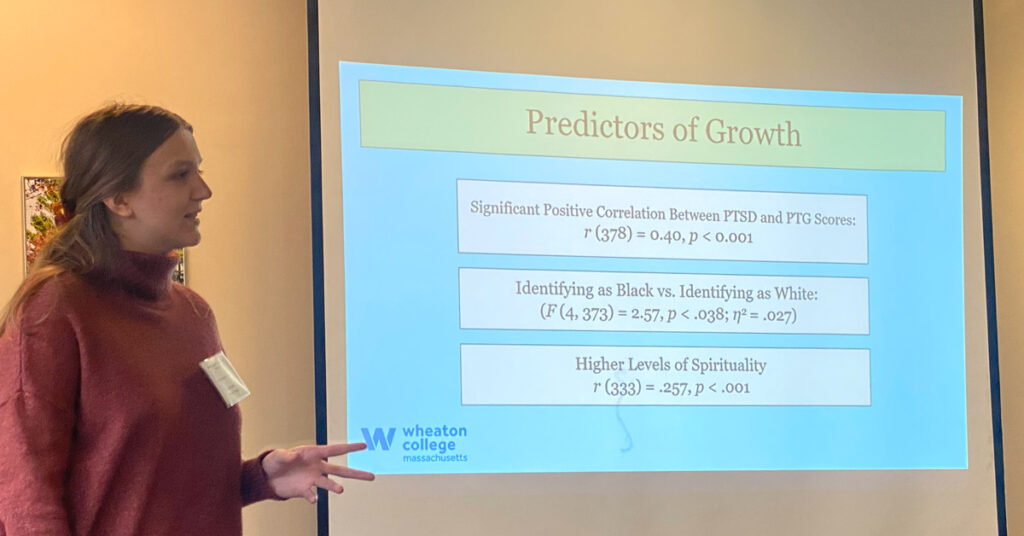Jenna Beebe ’24 grows as a researcher
Psychology and Public Health major Jenna Beebe ‘24 presented a paper at the 63rd Annual Meeting of the New England Psychological Association (NEPA). Her talk, “Posttraumatic Growth Following the COVID-19 Pandemic: Prevalence and Predictors,” shared the results of research that Beebe conducted in collaboration with Psychology Professor Michael Berg, a project funded by a Wheaton College Clemence Faculty-Student Research Grant awarded to Beebe and Berg this past summer.
Through their research, Beebe and Berg found that although many Americans encountered challenging life stressors as a result of the COVID-19 pandemic, they also experienced a degree of psychological growth. Their survey of 378 American adults focused on the concept of posttraumatic growth, the idea that people experience positive psychological changes specifically as the result of experiencing challenging life events. This growth can take on many forms including an increased appreciation of life, stronger social ties, and increased feelings of personal strength. And there is a relationship between the two. As the levels of trauma increase, so do the opportunities for growth.
With the assistance of Hanna Ondrasek ‘26, Beebe coded open-ended responses to the question, “We are interested in the positive ways that the COVID-19 pandemic has changed how you feel and behave. What are the first three ways that come to mind?” Interestingly, the open-ended results revealed a different pattern of growth from the quantitative responses. So while Americans are experiencing posttraumatic growth in many forms, it may be that feeling “more closely related to others” and gaining “personal strength” might be more salient for people than “appreciation for life” which had the highest mean on the quantitative scale.
This line of research continues work that Berg has been conducting since the beginning of the pandemic. His previously published studies have examined the factors related to participating in COVID-19 prevention behaviors such as mask wearing and becoming vaccinated, and research looking at the role of disinformation campaigns on people’s decisions to not become vaccinated.
It is rare for undergraduate students to present their work at a professional psychology conference alongside professors and advanced graduate students. But Beebe was a natural and enjoyed the process. “It was definitely nerve-racking,” Beebe said, “but it was a great experience. I feel really grateful to have had this opportunity.” Beebe first became interested in this work when she took Berg’s Quantitative Research Methods and Health Psychology courses last fall. She and Berg plan to continue their research collaboration this spring with an independent study project related to mind-body health.

-
Categories:
- Academics
- Psychology
- Public Health